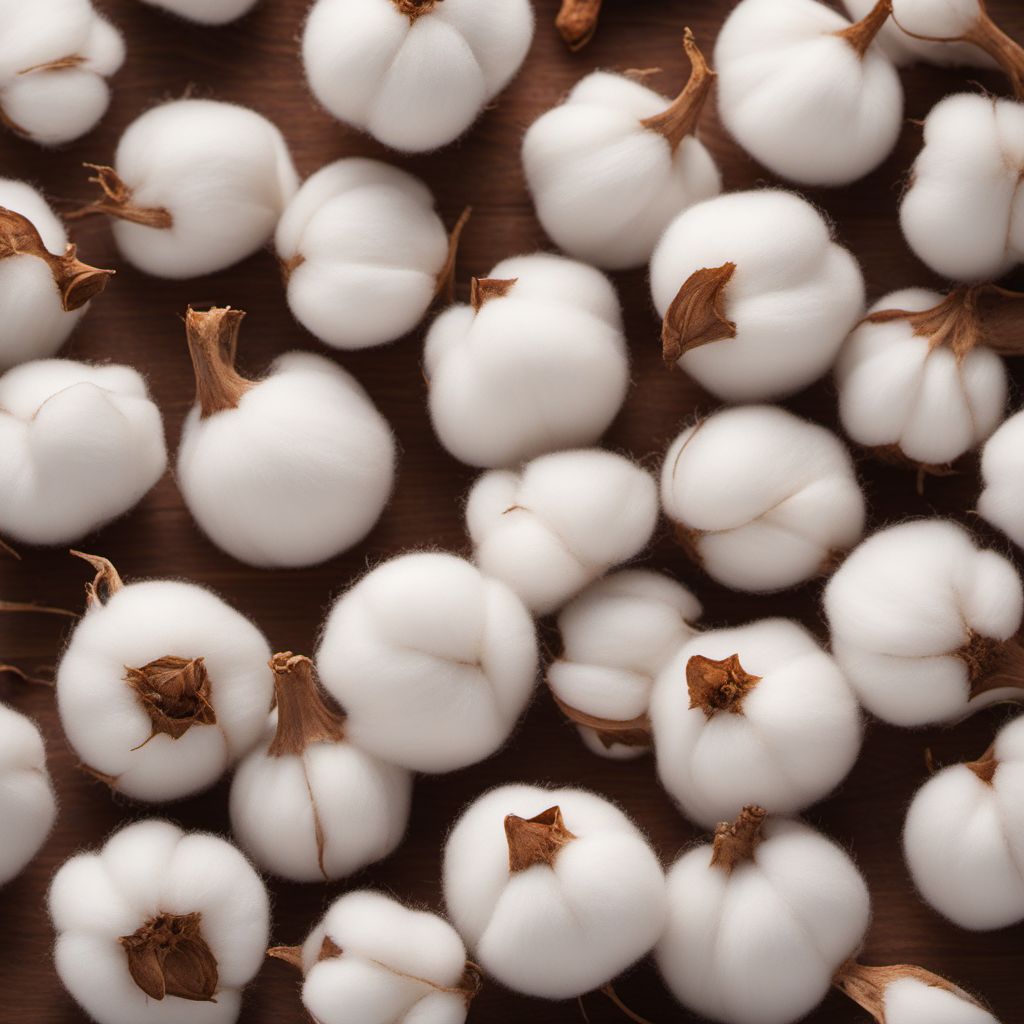
Ingredient
Cotton seeds
The Hidden Gems of Cotton Plants
Cotton seeds have a firm yet slightly crunchy texture with a nutty and earthy flavor. They are typically light brown or beige in color and are often used as an ingredient in various cuisines, particularly in regions where cotton is cultivated.
Origins and history
Cotton has a long history of cultivation, dating back thousands of years. The use of cotton seeds in cooking can be traced back to ancient civilizations, where they were utilized for their nutritional value and unique taste. Today, cotton seeds are primarily grown for their fibers, but their culinary potential is increasingly recognized.
Nutritional information
Cotton seeds are a good source of protein, healthy fats, and dietary fiber. They also contain essential minerals such as magnesium, phosphorus, and zinc. However, it is important to note that cotton seeds should be consumed in moderation due to their high calorie and fat content.
Allergens
Cotton seeds are not known to be allergenic. However, individuals with nut allergies should exercise caution and consult with a healthcare professional before consuming cotton seeds or products containing them.
How to select
When selecting cotton seeds, look for those that are clean, dry, and free from any signs of mold or damage. Ensure that the packaging is intact and properly sealed to maintain freshness. It is also advisable to choose organic cotton seeds to minimize exposure to pesticides or other chemicals.
Storage recommendations
To preserve the freshness and quality of cotton seeds, store them in an airtight container in a cool, dry place away from direct sunlight. Proper storage will help prevent the seeds from becoming rancid or losing their flavor.
How to produce
Cotton plants require specific growing conditions, including warm temperatures, well-drained soil, and full sun exposure. While it is possible to grow cotton plants at home, it is important to note that cotton seeds intended for culinary use may require specific varieties that are cultivated for their taste and quality.
Preparation tips
Cotton seeds can be roasted and seasoned with spices for a crunchy snack, ground into flour for baking, or used as a topping for salads, cereals, and yogurt. They can also be incorporated into stir-fries, pilafs, and vegetable dishes to add texture and flavor.
Culinary uses
Cotton seeds are primarily used in cuisines of regions where cotton is cultivated, such as parts of Asia, Africa, and the Americas. They may also be found in specialty stores or online retailers catering to unique ingredients.
